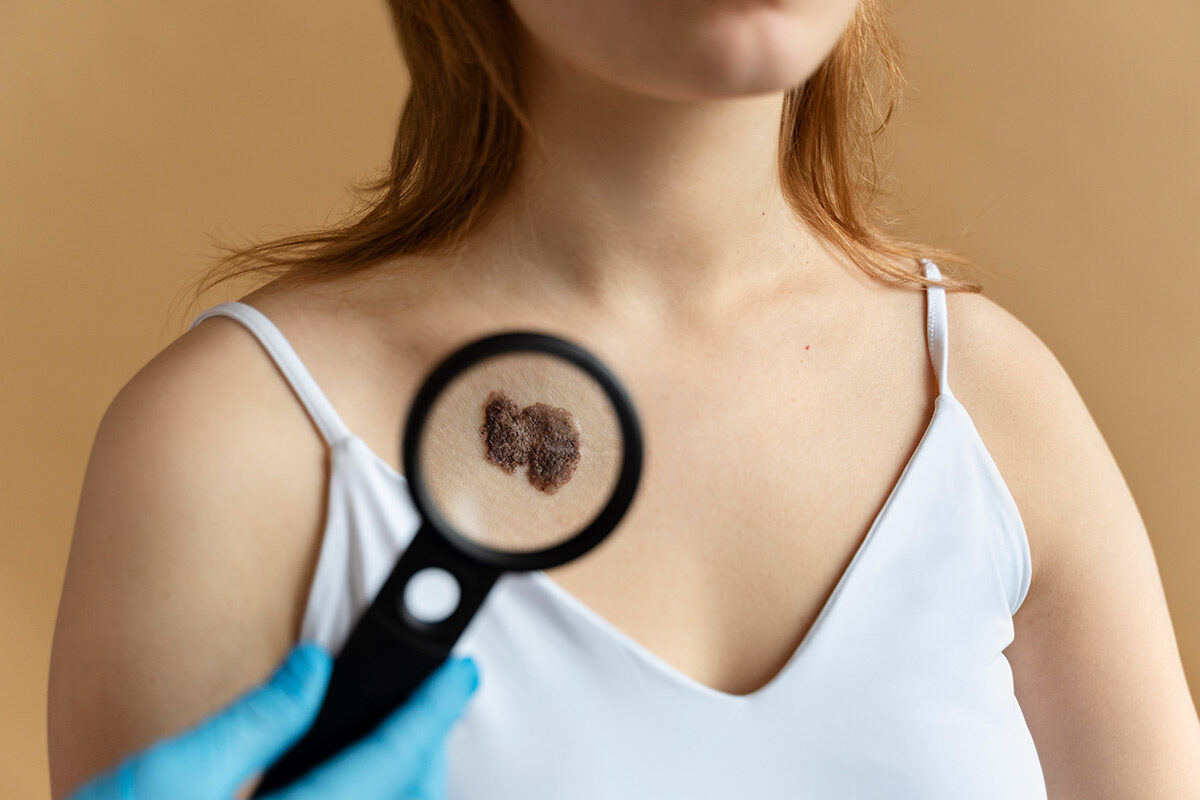Because each patient is unique, it is impossible to discuss all of the possible complications and risks of surgery. As noted earlier, there will be a scar at the site of the cancer removal. We will make every effort to obtain optimal cosmetic results, but our primary goal is to remove the entire tumor. Again, Mohs surgery will leave you with the smallest possible wound, thus creating the best opportunity for optimal cosmetic results.
Typical risks for Mohs surgery are discussed below, but it is important to note that these are the same risks involved in any routine skin surgery. Dr. Pharis will discuss any additional potential problems associated with your particular case on the day of your surgery.
Please understand that these are the exception, not the rule:
- The surgical wound created by removal of the skin cancer may be larger than anticipated. There is no way to predict prior to surgery the exact size of the final surgical wound. Also, the reconstructive surgery may be larger or more extensive than anticipated in order to avoid puckering or pulling on vital structures. Typically, a linear scar must be 3 times longer than the width of the surgical wound to avoid lumpiness or puckering of the scar,
- Although all surgery leaves a scar, sometimes this scar can be thickened, spread, depressed or painful. At times this improves over time but if not attempts may be made to correct the problem.
- Poor wound healing may occur, despite our best efforts. Many things influence how well you will heal (location of the tumor, bleeding, medications, poor physical condition, smoking, diabetes or other medical problems), Scars are typically thin fine lines, however. Occasionally they may be thickened, lumpy or they may spread or widen.
- There may be loss of motor (muscle) or sensory (feeling) nerve function. Numbness is often temporary, but may occasionally be permanent. The lips and the scalp are areas where numbness is more common. .
- Although temporary swelling and bruising are common after surgery. Long lasting or permanent swelling is uncommon. Some swelling resolves in days, while other swelling may take weeks or months to improve.
- Rarely, wounds become infected and require antibiotic treatment. If you are at particular risk for infection, you may be given antibiotics prior to surgery or after completing surgery.
- Smoking before or after surgery can lead to complications. Minimize smoking one week prior to and after surgery if at all possible, but it is best not to smoke at all during this time.
- As a final thought, although the surgeon may perform your surgery in a standard fashion, and although you may follow directions for wound care perfectly, still in some cases, the body may not heal as both the doctor or the patient would hope, these uncommon cases cannot be predicted in advance. Although it is impossible to guarantee the results of surgery, Dr. Pharis will do everything possible to attempt to make you happy with your final appearance.

